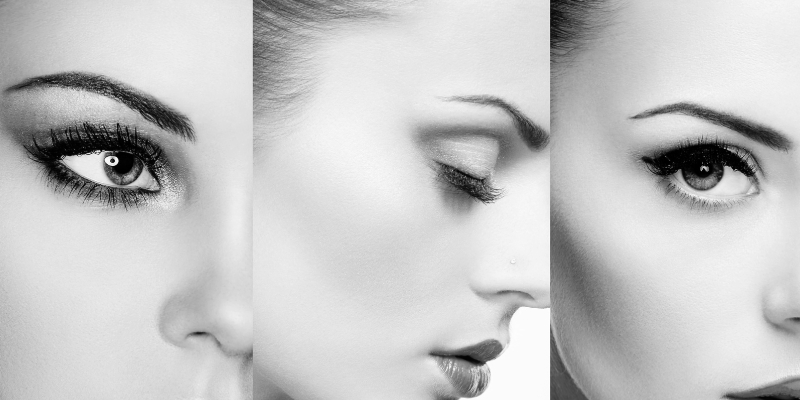When you look in the mirror, you see skin that is calling S.O.S. and hair that whispers rescue every time you comb your hair? The crown of our beauty and natural protective coat often suffer from improper eating habits, which insidiously undermine their condition. However, you don't have to spend a fortune on expensive cosmetics - the secret to radiant skin and shiny strands can be hidden on your plate! In this article, we will discover five key principles of nutrition that will make your skin glow again and your hair elastic and strong. Discover the nutrients that act as natural elixirs of youth for your body.
Tips from Pretty Woman: Aesthetic Medicine Nowy Targ
The connection between nutrition and skin health
The Polish diet is currently undergoing a significant transformation. We are moving away from traditional, heavy meals in favor of a more balanced diet, which directly affects the condition of our skin. Research conducted by the Medical University of Warsaw showed that people who regularly consume products rich in antioxidants (such as blueberries, chokeberry or blackcurrant – popular in Polish fruit growing) enjoy better skin condition and a slower ageing process.
Let's take a look at traditional Polish products that have supported the health of our ancestors' skin for centuries. Pickles, so characteristic of our cuisine, provide probiotics that regulate intestinal microflora, which directly translates into reduced skin inflammation. In turn, oily fish from the Baltic Sea were a source of omega-3 acids, which will moisturize the skin from the inside and strengthen its protective barrier.
In recent years, we have observed a growing awareness of Poles regarding the impact of diet on appearance. More and more people are reaching for dietary supplements containing zinc and selenium, elements that are key to skin regeneration.. Remember, however, that no supplement can replace a balanced diet rich in seasonal vegetables and fruits, which have always been the foundation of Polish cuisine.
The skin is a mirror of our lifestyle – what we eat today, we will see on our face tomorrow – says Prof. Anna Kowalska, a dermatologist with many years of experience.
Your skin will reward you with health and youthful appearance if you include in your diet products rich in vitamin C (wild rose, blackcurrant), vitamin E (vegetable oils, nuts) and zinc (pumpkin, sunflower seeds). These ingredients, easily available at Polish markets and stores, are a natural "medicine kit" for the skin. Did you know that a traditional Polish dinner consisting of tomato soup and a second course rich in vegetables provides most of the necessary nutrients for healthy skin?
Key nutrients for healthy skin
Your skin needs proper nourishment to stay young and supple. Vitamins A, C and E actively fight free radicals that accelerate the aging of skin cells. Instead of using only external cosmetics, nourish your skin from the inside – include colorful vegetables and fruits in your diet, which will provide these valuable ingredients.
Omega-3 fatty acids support the skin’s protective barrier and reduce inflammation. Instead of avoiding fats, opt for the good ones – found in ocean fish, nuts and chia seeds. Studies show that regular consumption of these foods can significantly improve skin hydration after just a few weeks…
Collagen builds the structure of your skin, giving it firmness. Although our bodies produce less of it as we age, we can support its production. Antioxidants in blueberries, pomegranates, and green tea protect existing collagen, while vitamin C from citrus fruits and peppers stimulates the creation of new collagen. The combination of these ingredients works synergistically, providing the skin with comprehensive protection and regeneration.
Zinc and selenium are minerals that are often overlooked when it comes to skin health. Zinc regulates sebum secretion and promotes healing, making it essential for those struggling with acne. Selenium protects cells from oxidative damage and supports the action of vitamin E. You can find them in pumpkin seeds, Brazil nuts, and seafood.
Probiotics affect the microflora not only of the intestines, but also indirectly of the skin. They maintain the balance of good bacteria, which reduces inflammation and improves the skin's resistance to external factors. Include fermented products such as kefir, yogurt or pickles in your diet, and your skin will thank you with a radiant appearance.
The impact of diet on hair condition
The condition of your hair reflects the health of your entire body. What's on your plate, directly affects how your hairstyle looks during important business meetings or industry conferences. Deficiencies of key nutrients can lead to weakening of the hair structure, excessive hair loss and loss of natural shine - problems that negatively affect the professional image. Healthy hair is not only a matter of aesthetics, but also an element of building self-confidence in the professional environment.
A diet rich in protein, omega-3 fatty acids, B vitamins and minerals such as zinc and iron strengthens hair from the inside, while supplementation without a proper nutritional base remains ineffective. It is therefore worth investing in a healthy diet, not only for the condition of the hair, but for general well-being, which translates into efficiency at work.
Your hair needs nourishment and your career needs healthy hair – it’s a connection that cannot be ignored on the path to professional success.
Remember: hair grows from the inside, not the outside, so external treatments without proper nutrition will not bring long-term results.
Foods recommended to improve the appearance of skin and hair
A diet rich in the right nutrients is the foundation for healthy skin and beautiful hair. I remember my aunt Zosia, who was always famous for her radiant complexion even in her sixties, saying: "What you eat shows on your face in just two weeks". At first I didn't believe it, but when I started introducing more fish, nuts and colorful vegetables into my diet, the difference was noticeable almost immediately.
Omega-3 fatty acids contained in oily sea fish such as salmon, mackerel or herring are invaluable for the condition of the skin. They moisturize it from the inside, reduce inflammation and delay the aging process. Walnuts, chia seeds and flax seeds are also a rich source of these valuable acids. Introducing them to your daily diet can bring effects that cosmetics can only… Well, you know.
Antioxidants are other allies in the fight for a beautiful appearance. Blueberries, raspberries, blueberries and pomegranates are real antioxidant bombs that protect skin cells from the harmful effects of free radicals. It is especially worth reaching for them in the morning, when the body is most susceptible to oxidative stress.. Green tea, a treasure trove of polyphenols, has a similar effect – it reduces redness and supports natural regenerative processes.
You can't forget about protein - the basic building block of hair. Eggs, lean meat, legumes and tofu provide amino acids necessary for the production of keratin. Protein deficiency quickly affects the condition of hair, which becomes dull, brittle and falls out. I learned this the hard way when I experimented with a restrictive low-protein diet for a month. My hair began to fall out in handfuls and my nails began to break at the slightest pressure. Only a return to a balanced diet with an adequate amount of protein reversed these disturbing symptoms.
Vitamins A, C, E and minerals such as zinc and selenium are other ingredients that are worth including in your diet for beautiful skin and hair. Carrots, sweet potatoes, peppers, broccoli, Brazil nuts and pumpkin seeds are real treasure troves of these microelements. Regular consumption of these products will not only improve your appearance, but also strengthen your body's immunity, which is an invaluable value these days.
Antioxidants and their importance for skin health
Since I started noticing the first signs of aging on my skin, I feel like I've been fighting an internal battle. On the one hand, I'm growing as a human being and accepting natural processes, but on the other hand, I want to maintain a healthy and youthful appearance for as long as possible. That's when I started delving into the topic of antioxidants.
At first I felt overwhelmed by the amount of information. Vitamin C, E, coenzyme Q10, resveratrol – the list seemed endless. I wondered if I really needed all of these ingredients or if it was just a marketing ploy by cosmetic companies. After consulting a dermatologist, I realized that antioxidants really do play a key role in protecting the skin from free radicals that accelerate the aging process.
So I started with a diet. I introduced more colorful vegetables and fruits, especially red and orange ones. Berries, tomatoes, carrots – all of these products became my allies in the fight for healthy skin. After a few weeks, I noticed the first effects – my complexion became more radiant, and fine wrinkles seemed to be less visible.
What surprised me most was how much the condition of my skin reflects the condition of my entire body. When I increased my antioxidant intake, not only did my skin look better – I also felt more energetic and resistant to infections. This made me realize that skincare is not just about cosmetics applied from the outside, but also about what I feed my body from the inside.
Today, after a year of consciously taking care of the right amount of antioxidants in my diet and cosmetics, I can honestly say that my skin looks better than it did a few years ago. It's not about cheating time - that's impossible. It's about my skin aging healthily, and me feeling good in my own body, regardless of age.
Hydration and skin and hair health
Proper hydration is a fundamental element of caring for the condition of the skin and hair. Water, as the basic building block of every cell, participates in the body's detoxification processes, removing harmful substances that could negatively affect the appearance. Insufficient fluid intake leads to skin dehydration, which results in roughness, loss of elasticity and deepening wrinkles. Remember that even mild dehydration can significantly affect the glow of your skin!
Oh water, the invisible elixir of beauty, how much every hair and every skin cell needs you! Regularly drinking at least 1.5-2 liters of water a day helps transport nutrients to hair follicles, which translates into the growth of strong and shiny hair. In addition, hydrated skin absorbs active ingredients from cosmetics more effectively, maximizing their effect. Intensive hydration is a natural, no-cost way to improve your appearance, available to everyone.
Dietary supplementation and skin and hair health
Proper dietary supplementation can have a significant impact on the condition of the skin and hair. In today's world, when stress, environmental pollution and an inappropriate diet can negatively affect our appearance, appropriately selected supplements become valuable support. However, the basis is always a balanced diet - supplements should only supplement deficiencies, not replace full-value meals.
The key ingredients for healthy skin and hair are: B vitamins (especially biotin), vitamins A, C and E, as well as minerals such as zinc, silicon and selenium. Omega-3 fatty acids also play an important role, supporting skin hydration and giving hair a healthy shine. Collagen, which has gained huge popularity in recent years, can improve skin elasticity and strengthen hair structure.
A little-known aspect of supplementation is the phenomenon of “intermittent micronutrient starvation” – some studies suggest that short-term (1-2 days) restriction of supplementation can increase the body’s sensitivity to nutrients and improve their absorption later. This method, although controversial, is used by some dermatologists in therapies supporting skin regeneration.
It is worth remembering that the effects of supplementation are not immediate. The skin cell renewal cycle lasts about 28 days, and hair grows at a rate of about 1 cm per month. This means that the first visible effects of supplementation can be observed only after 1-3 months of regular use.
Before starting any supplementation, it is always worth consulting a doctor or dietitian to exclude potential contraindications and select the dosage appropriate for individual needs. Too much of some nutrients can be as harmful as too little, and some supplements may interact with medications you are taking.
Take care of your beauty from the inside – summary
Our diet is crucial for the condition of our skin and hair. Ingredients such as vitamins A, C, E and minerals, including zinc and selenium, directly affect the regeneration and protection of skin cells. Omega-3 acids are equally important, as they prevent dryness and maintain moisture.
Regularly eating foods rich in antioxidants, such as colorful vegetables and fruits, protects against free radical damage. Proper hydration and limiting simple sugars and processed foods also support a healthy appearance.
It's time for a change! Start a balanced diet today, rich in essential nutrients, and your skin and hair will reward you with a healthy look. Consult a dietician to create a nutrition plan that is perfectly tailored to your needs.
Frequently asked questions
What vitamins are most important for healthy skin?
The most important vitamins for the skin are A, C and E. Vitamin A supports cell regeneration, vitamin C is involved in the production of collagen, and vitamin E acts as a strong antioxidant that protects against damage.
Can diet help fight acne?
Yes, diet has a big impact on acne. Limiting high-glycemic foods, dairy, and increasing your intake of antioxidants and omega-3 fatty acids can significantly improve the condition of acne-prone skin.
What products damage hair the most?
The most damaging to hair are highly processed products, rich in simple sugars and trans fats. Excess alcohol, caffeine and protein deficiency can also lead to hair weakening and loss.
How much water should you drink daily for healthy skin?
To maintain healthy, moisturized skin, it is recommended to drink about 2 liters of water per day. This amount should be increased during hot weather, intense physical activity, or staying in air-conditioned rooms.
Can supplements replace a healthy diet when caring for your skin and hair?
Supplements are not a substitute for a balanced diet. The body absorbs nutrients best from natural foods. Supplements can only be used to supplement identified deficiencies, preferably under the supervision of a physician or dietician.
Frequently asked questions
Which nutrients have the strongest impact on skin condition?
Vitamins A, C and E, omega-3 acids, zinc and selenium are key for the skin. Regular consumption of foods rich in these ingredients helps strengthen the skin's protective barrier and delay the aging process.
Does drinking water actually improve the appearance of your skin?
Yes, proper hydration is essential for healthy skin. Water helps remove toxins, improves skin elasticity and helps transport nutrients to skin cells.
How can diet help with hair loss?
A diet rich in protein, iron, B vitamins and biotin can significantly reduce hair loss. Include eggs, nuts, seeds, fish and green vegetables in your diet to strengthen the hair structure from the inside.
How quickly can you notice the effects of a diet change on your skin and hair?
The first effects may be visible after 4-6 weeks of regular use of a balanced diet. Full results usually appear after 3-6 months, as the cycle of skin cell renewal and hair growth takes time.







